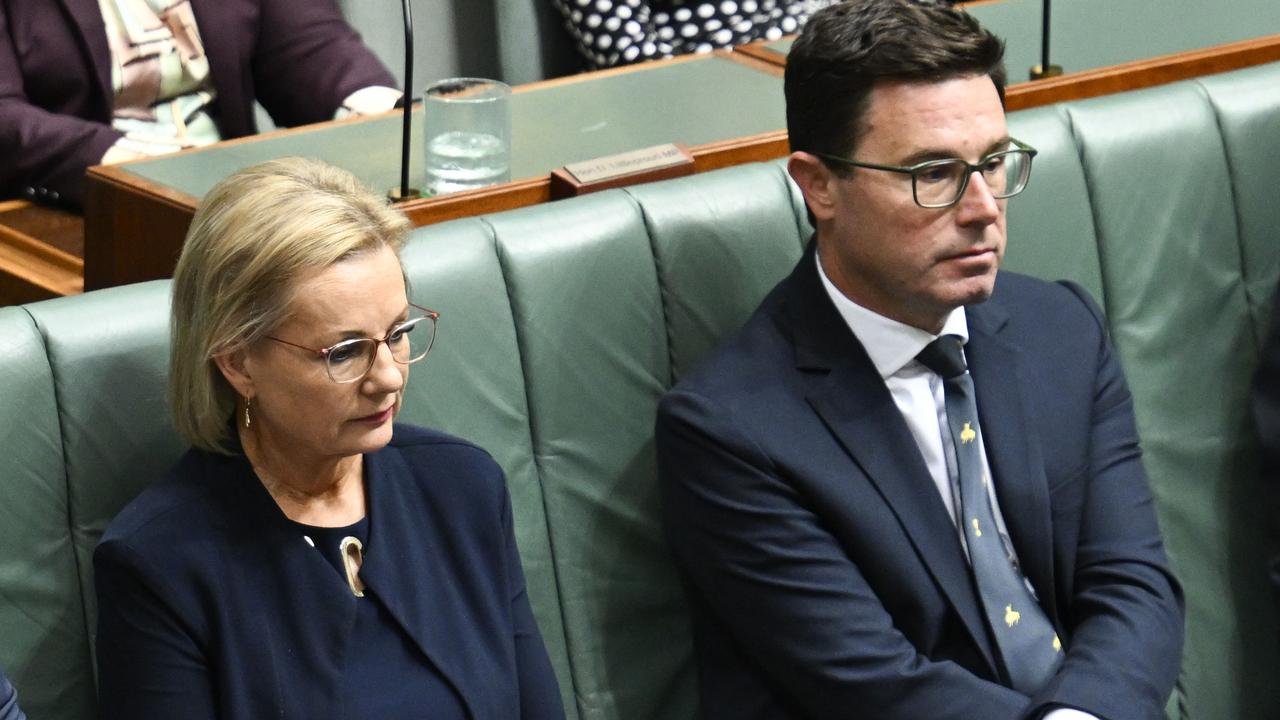LETTERS: Where is our fast train?
IT'S NO surprise the Premier has quashed the proposal for a fast train connecting Brisbane to the Gold Coast to alleviate traffic congestion.

Opinion
Don't miss out on the headlines from Opinion. Followed categories will be added to My News.
Being left behind
IT'S NO surprise that Premier Annastacia Palaszczuk has quashed the proposal for a fast train connecting Brisbane to the Gold Coast to alleviate traffic congestion.
It is what you'd expect seeing as Australia's public infrastructure system is one of the most backward in the modern world.
Federal and state governments have shamefully failed Australia's citizens by ignoring essential public infrastructure, thus retarding the country's development.
The Federal Government would rather give away billions to rich overseas countries each year than provide greatly needed infrastructure projects that benefit Australia's taxpayers, create thousands of jobs and build business growth.
After World War II, Japan and Europe lay in ruins. But their new governments had vision and respect for their people. They set out to make their countries great again.
They quickly became industrial and commercial powerhouses by building large-scale public infrastructure systems.
Compare their progress with Australia's archaic rail, road, communications, education, and hospital systems.
Just 19 years after the war, Japan launched its first bullet train.
Standard gauge rail lines were built across the nation and now carry eight fast trains criss-crossing the country.
In Australia, 73 years after the war, we still don't have a fast train.
And please don't embarrass anyone by mentioning the antiquated Tilt Train, or the fact that our state rail gauges aren't compatible.
We still use roads designated as highways built during the 1930s and '40s.
We have a dud communications system called the NBN, now $15 billion over budget and still unfinished.
It will be obsolete by the year 2020.
We have an education system that is making our kids dumber, not smarter, and a hospital system underfunded and always in crisis.
We constantly suffer water shortages and droughts but haven't built a new dam in over 40 years.
No attempt has been made to harvest the massive overflow of water from North Queensland rivers when it rains.
It's estimated saving this water could drought-proof tens of thousands of square kilometres.
LNP and ALP governments have ignored their citizens by repeatedly failing to progress Australia into the 21st Century.
Neither of them has any respect or love for the country.
However, they are both in agreement that one of them will always be in power.
B BARRY
Bundaberg
2.7 million carers
ANYONE at any time can become a carer.
There are around 2.7 million unpaid carers in Australia, many of whom would probably just say they're being a partner, a parent, a child, a friend or a good neighbour, but the reality is they make an enormous contribution to our community.
This week marks National Carers Week (October 14-20) - an opportunity to celebrate carers and the highly valuable community service they perform.
In Queensland, around 27,000 Queenslanders are diagnosed with cancer each year, and the role of carers in supporting these people, to help them achieve the best possible quality of life, is of crucial importance.
The caring role varies depending on the situation. Many carers for cancer patients provide emotional and practical support. This can include doing household chores, providing transport, helping with personal care, communicating with family and friends, and providing encouragement, comfort and understanding.
Many carers will help navigate the health care system and encourage for the person with cancer to seek professional advice on financial, legal and medical concerns.
At Cancer Council Queensland, we value carers for all their efforts, but understand the challenges that come with their role.
Carers can experience confusion, stress and mental health challenges, with relationships, finances and overall wellbeing all often being impacted.
A call to Cancer Council's 13 11 20 can provide carers with access to support, information and resources - or simply a listening ear if needed.
For more information about Cancer Council Queensland and support available to both cancer patients and carers, visit cancerqld.org.au.
CHRIS MCMILLAN
CEO
Cancer Council Queensland
Donations doubt
ABOUT $50 million (or more) has been donated to help our struggling farmers and drought co-ordinator Major- General Stephen Day has "no idea” what percentage of donations are actually getting to the farm gate.
It has been suggested that this vast amount of money be given to "charities” to distribute.
Will these "charities” skim the top in the guise of administration costs as is the normal practice?
The most logical way would be to contact these small communities direct - say the fuel suppliers, rural suppliers etc and find out just which property owner is in dire need.
Many properties are owned by "Pitt St farmers” and can absorb some losses but the little, family-owned-and-operated farms are the ones who need help more than anybody.
Perhaps in some cases the overseas conglomerates that take water from rivers could let the water out for livestock instead of their precious cotton.
Major-General Day should be more hands-on.
Instead of pushing papers around on his desk he should be visiting these small towns (in civvies) and giving these donations to the people who need them or the funds will end up like those donated to other disasters still sitting in some bank account in Canberra.
JIM CARTER
Elliott Heads


